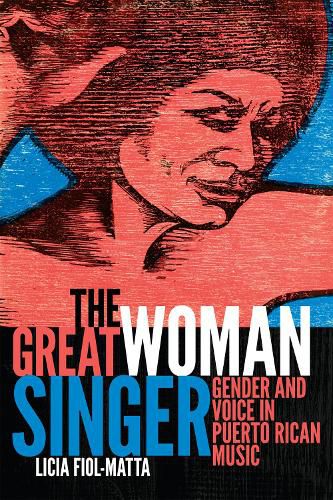Readings Newsletter
Become a Readings Member to make your shopping experience even easier.
Sign in or sign up for free!
You’re not far away from qualifying for FREE standard shipping within Australia
You’ve qualified for FREE standard shipping within Australia
The cart is loading…






Licia Fiol-Matta traces the careers of four iconic Puerto Rican singers-Myrta Silva, Ruth Fernandez, Ernestina Reyes, and Lucecita Benitez-to explore how their voices and performance style transform the possibilities for comprehending the figure of the woman singer. Fiol-Matta shows how these musicians, despite seemingly intractable demands to represent gender norms, exercised their artistic and political agency by challenging expectations of how they should look, sound, and act. Fiol-Matta also breaks with conceptualizations of the female pop voice as spontaneous and intuitive, interrogating the notion of the great woman singer to deploy her concept of the thinking voice -an event of music, voice, and listening that rewrites dominant narratives. Anchored in the work of Lacan, Foucault, and others, Fiol-Matta’s theorization of voice and gender in The Great Woman Singer makes accessible the singing voice’s conceptual dimensions while revealing a dynamic archive of Puerto Rican and Latin American popular music.
$9.00 standard shipping within Australia
FREE standard shipping within Australia for orders over $100.00
Express & International shipping calculated at checkout
Licia Fiol-Matta traces the careers of four iconic Puerto Rican singers-Myrta Silva, Ruth Fernandez, Ernestina Reyes, and Lucecita Benitez-to explore how their voices and performance style transform the possibilities for comprehending the figure of the woman singer. Fiol-Matta shows how these musicians, despite seemingly intractable demands to represent gender norms, exercised their artistic and political agency by challenging expectations of how they should look, sound, and act. Fiol-Matta also breaks with conceptualizations of the female pop voice as spontaneous and intuitive, interrogating the notion of the great woman singer to deploy her concept of the thinking voice -an event of music, voice, and listening that rewrites dominant narratives. Anchored in the work of Lacan, Foucault, and others, Fiol-Matta’s theorization of voice and gender in The Great Woman Singer makes accessible the singing voice’s conceptual dimensions while revealing a dynamic archive of Puerto Rican and Latin American popular music.